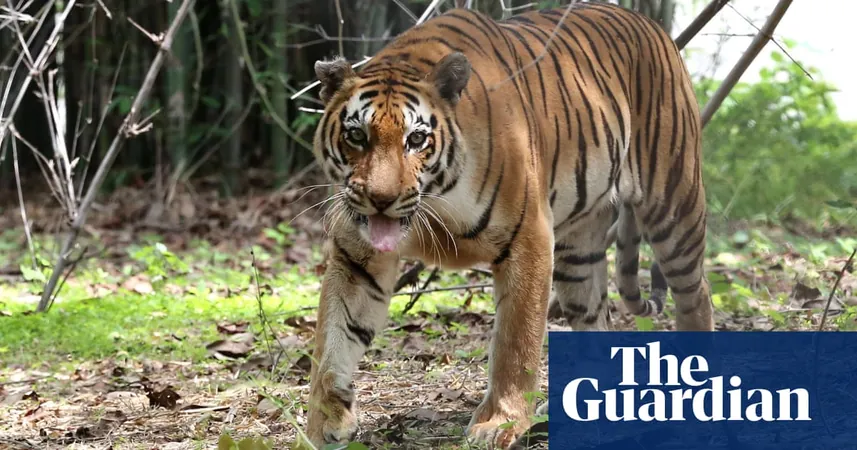
Heartbreaking Loss: Twenty Big Cats Fall Victim to Deadly Bird Flu at Washington Sanctuary!
2024-12-25
Author: Emily
Tragic Loss at Wild Felid Advocacy Center
In a tragic turn of events, twenty big cats, including a majestic Bengal tiger, four cougars, a lynx, and four bobcats, have succumbed to bird flu at the Wild Felid Advocacy Center in Shelton, Washington. The heartbreaking losses came between late November and mid-December, with the sanctuary's director, Mark Mathews, expressing disbelief at the scale and speed of the outbreak. “We’ve never had anything like it; they usually die basically of old age,” he lamented to a reporter from the New York Times. “Not something like this; it’s a pretty wicked virus.”
The Spread of Highly Pathogenic Avian Influenza
This unfortunate incident highlights the alarming spread of highly pathogenic avian influenza (HPAI) across the United States, which has severely impacted poultry farms and even led to infections and fatalities among domestic cats, as well as a severe case in a person in Louisiana.
Rapid Response and Biosecurity Measures
After announcing that some of their animals were showing signs of an unknown illness, the sanctuary took prompt action and temporarily closed to the public. Sadly, by December 6, veterinary officials confirmed the presence of bird flu in some of the wild cats. The center reassured the public that they were implementing stringent biosecurity measures to safeguard both the remaining animals and staff.
The Impact on the Sanctuary's Population
Despite their efforts, the sanctuary reported this week that over half of their wild felids were affected by the virus, which can be contracted by carnivorous mammals that consume infected birds or their byproducts. The symptoms can be deceptive initially, often leading to rapid deterioration and death within a day due to pneumonia-like symptoms.
Efforts to Contain the Outbreak
Currently, only 17 big cats remain at the sanctuary as staff work diligently to trace the source of the outbreak. This includes removing 8,000 pounds of potentially contaminated food from storage and rigorously disinfecting each animal habitat.
Wider Implications and Monitoring Needs
In a broader context, the Washington Department of Fish and Wildlife recently reported that they have confirmed avian influenza infections in numerous wild birds this fall and noted recent cases of the H5N1 virus in regional cougars. This mirrors troubling reports from Los Angeles where health officials are investigating incidents of household cats that are suspected to have contracted bird flu, including two who ingested recalled raw milk from a dairy linked to the outbreak.
Conclusion: Interconnectedness of Animal Health
This incident serves as a stark reminder of how interconnected animal health is within our ecosystem and highlights the urgent need for enhanced monitoring and prevention measures to protect both wildlife and domestic animals from emerging zoonotic diseases. As we follow this developing story, the fate of the remaining cats hangs in the balance, and the sanctuary remains committed to their safety and wellbeing.









 Brasil (PT)
Brasil (PT)
 Canada (EN)
Canada (EN)
 Chile (ES)
Chile (ES)
 España (ES)
España (ES)
 France (FR)
France (FR)
 Hong Kong (EN)
Hong Kong (EN)
 Italia (IT)
Italia (IT)
 日本 (JA)
日本 (JA)
 Magyarország (HU)
Magyarország (HU)
 Norge (NO)
Norge (NO)
 Polska (PL)
Polska (PL)
 Schweiz (DE)
Schweiz (DE)
 Singapore (EN)
Singapore (EN)
 Sverige (SV)
Sverige (SV)
 Suomi (FI)
Suomi (FI)
 Türkiye (TR)
Türkiye (TR)